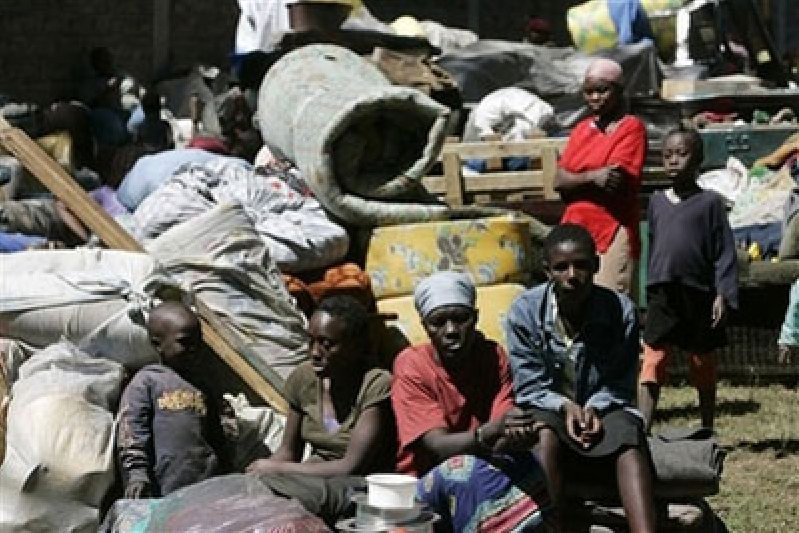
Insecurity on the streets of Nairobi has confined aid workers to their houses, making it impossible for them to distribute desperately needed food, medication and shelter to Kenyans who have fled the conflict and left everything they own behind.
“I feel very frustrated and disappointed that we cannot carry out our work,” said Peter Njuguna, project manager of St. John’s Community Center, a partner of U.K.-based Tearfund working in Nairobi’s slum.
“The situation is very volatile here. I can hear gunshots from our office and the roads are blocked,” he said.
A political dispute about the Dec. 27 election between incumbent President Mwai Kibaki and opposition candidate Raila Odinga has led to an outbreak of violence in the once stable and prosperous democratic country.
Odinga and his supporters accuse Kibaki of rigging the votes and have attempted to stage several failed protests in the capital. In the latest attempt, government forces squashed the protest on Thursday by firing teargas and water cannons at gathering demonstrators.
Yet more than party lines, the conflict has been about tribal affiliation. Kibaki is from the largest ethnic group in Kenya, the Kikuyu tribe, while Odinga is from the Luo tribe, a smaller but still major group. Citizens from both candidates’ tribes have attacked one another in defense of their fellow tribe member.
The violence has raged from Nairobi’s slums to coastal resorts for five days now, leaving more than 300 people dead and 100,000 internally displaced, according to The Associated Press.
One victim, Peter Ochieng, 37, who lives in Kibera slum, complained, “There is no food, there is no water. People here are dying,” according to AP.
St. John’s Njuguna also complained that his organization could not reach the some 160 people living with AIDS under their care because of the clashes in the area.
“We are taking the situation day by day at the moment,” said Njuguna. “We cannot predict how things will go. But we hope for peace.”
Besides Tearfund, Action by Churches Together (ACT) is also working with local partners to mobilize and distribute food relief for displaced people in the Nairobi slums and in Kisumu. ACT’s U.S.-based members include Church World Service, Norwegian Church Aid, and Lutheran World Relief.
Other Christian leaders involved in the Kenya violence include Archbishop Desmond Tutu, who held talks with Odinga on Thursday, and the World Council of Churches’ general secretary, the Rev. Dr. Samuel Kobia, who has offered to support peace dialogue between the two political foes.
Peace, however, is unlikely to be reached by Friday as Odinga’s party said it will again attempt to hold a protest on Friday with an expected participation number over one million people.
Tearfund requests that Christians pray for:
•the ethnic violence and killing between the Luo and the Kikuyu to stop
•diplomatic pressure to help secure a peaceful end to the political impasse
•Tearfund staff and partners to remain safe
•the right leader for Kenya to have his position confirmed and the country to be able to accept the result






